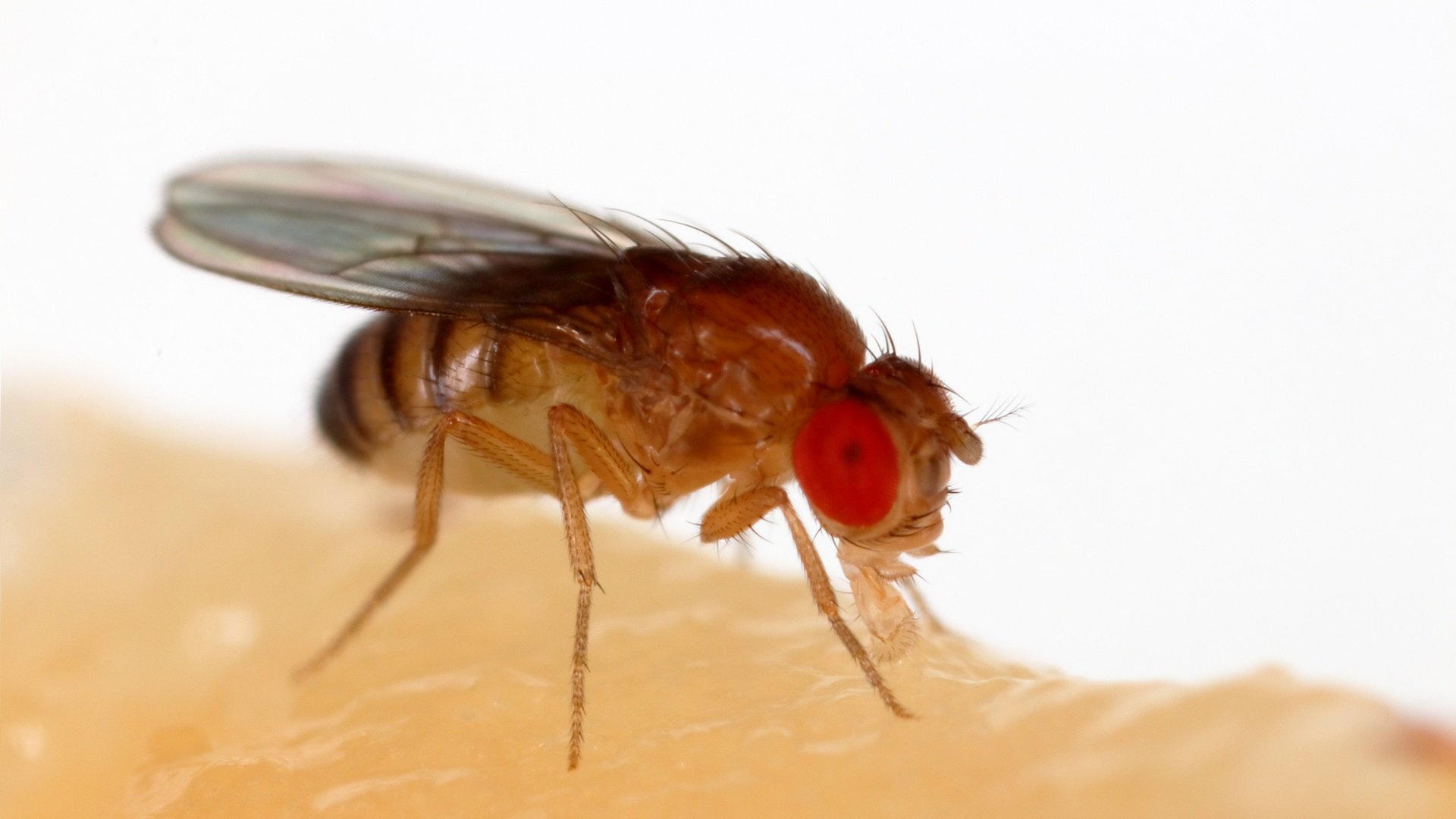Dynamic duo
A new study specifically looked at two bacteria that occur in the intestine of the fruit fly: Acetobacter pomorum and Lactobacillus plantarum. A. pomorum is a bacterium that we for example apply in making vinegar, and L. plantarum is a common species of lactic acid bacteria that can be found in all kinds of fermented foods such as yoghurt and sauerkraut. In order to look closely at what these bacteria do, the researchers removed all bacteria in the fruit flies intestines. After giving Acetobacter and Lactobacillus, they used various techniques to look at how the bacteria and the fly behaved. Would the two species fight each other or would they live together in peace?
Stronger together
The result turned out to be that these bacteria to go much further than just living together. The Acetobacter and Lactobacillus actually provide each other with essential nutrients when they are lacking for one of the two species. Some substances are even shuttled between them, with each bacterium in turn completing part of a digestion process. In this way the bacteria help each other to survive in more difficult times when the fly does not eat what one of the two species needs.
Influenced by microbes
The two bacteria even seem to work together to influence fruit fly choices for certain foods. Fruit flies that were put on a diet that is deficient in essential amino acids (the building blocks of proteins) gained, as expected, a strong appetite for protein-rich foods. Surprisingly, it turns out that the fruit flies with large amounts of Acetobacter and Lactobacillus have a preference for sugary food instead. So it seems as if the fruit fly is doing something that might be nice for the bacteria, but not for the fruit fly itself.
Advantage for the fruit fly
Fortunately, not only the microbes benefit from their cooperation and persuading the fruit fly to change its diet, the fruit fly itself also benefits from it. The amino acids needed by the fruit fly, which it does not get from the sugary diet, are probably provided by the bacteria. Moreover, these fruit flies appear to be able to lay more eggs than fruit flies that did not receive the two bacteria. That way everyone helps each other, a win-win-win situation.
How about us?
We humans also have a microbiome in our intestines. All day long, gigantic amounts of bacteria help us to do all kinds of things. But now that we know that the bacteria in the fruit fly's intestine can influence decisions about food, we have to ask ourselves whether that might also be the case with us. Do you fancy a potato salad or do your intestinal microbes whisper it to you?
Would you like to meet the microbes that live in your intestine? Then come visit Micropia and try out the Body Scan, or take a peek through the microscope at a real Lactobacillus.
| https://www.nature.com/articles/s41467-020-18049-9 |

